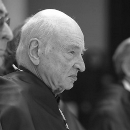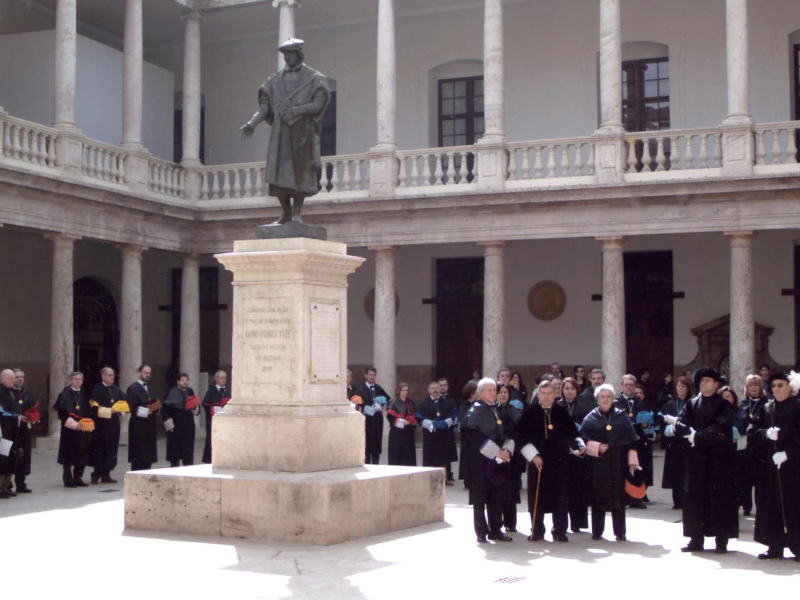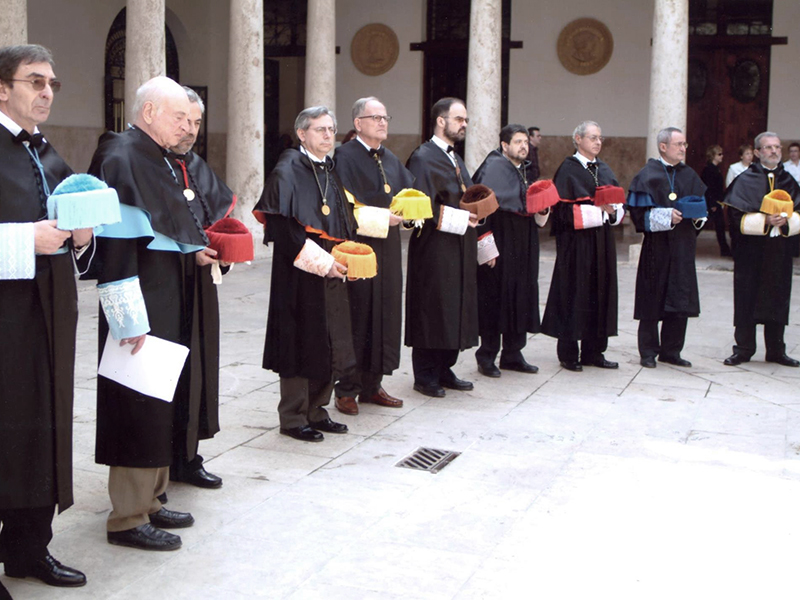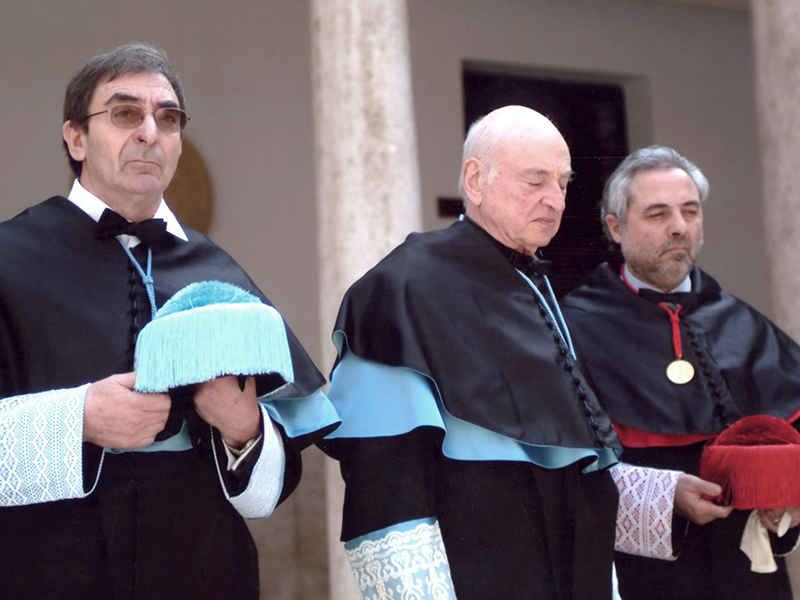
Date of appointment: 27 september 2001.
By proposal of: Faculty of Philosophy and Education Sciences.
Date of investiture: 12 march 2004.
Sponsor: Dr. Rafael Beneyto Torres and Dr. Javier de Lucas Martin.
Edgar Morin (Paris, July 8, 1921), born Edgar Nahum, is a French philosopher and sociologist of Sephardic origin
He began his philosophical work with the reading of the various representatives of the Enlightenment of the eighteenth century. He was linked to socialism thanks to the support of the Popular Front (which he joined in the Federation of Front Students, directed by Gaston Bergery) and the Spanish Republican government in the Spanish Civil War. In 1940 he fled to Toulouse when he learned of the invasion of Nazi Germany and devoted himself to helping the refugees and at the same time to deepen Marxist socialism. He took part in the resistance and joined the French Communist Party in 1941, being persecuted by members of the Gestapo. He participated in the liberation of Paris (August 1944).
In 1946, he returned to continue his activities with communism. His relationship with the party deteriorated due to his critical stance and he was expelled in 1952 due to an article published in France Observateur. In that same year he was admitted to the National Center for Scientific Research (CNRS).
By joining the CNRS, Morin starts in the field of social issues in the field of film, approaching surrealism, but still does not leave socialism, which shares ideas with Franco Fortini and Roberto Guiducci, as well as Herbert Marcuse and other philosophers. He founded and directed the magazine Argumentos (1956-1962) while living an internal crisis and manifested against the Algerian war (1954-1962).
At the beginning of the 1960s, Morin began work and expeditions in Latin America and was impressed by his culture. Later he begins to elaborate a thought that complements the development of the subject. Already in Poulhan, and in the company of its collaborators, it develops an investigation of experimental character that culminates with the thesis of the transdisciplinariedad, that generates greater contradictions to him with other academics.
During the student revolt of the French May (1968), he writes articles for Le Monde, in which he deciphers the meaning and meaning of that event.
With the emergence of the bio-genetic revolution, he studies the thought of the three theories that lead to the organization of his new ideas (cybernetics, systems theory and information theory). It is also complemented by Heinz von Förster's theory of self-organization. For 1977, he elaborates the concept of pertinent or encyclopedic knowledge, from which he links scattered knowledge, proposing the epistemology of complexity.
In 1983, he was decorated with the Order of the Legion of Honor and in the mid-1980s, he already glimpses the changes in the Soviet regime of Mikhail Gorbachev. In 1994 he was awarded the Catalonia International Prize by the Generalitat de Catalunya.
















